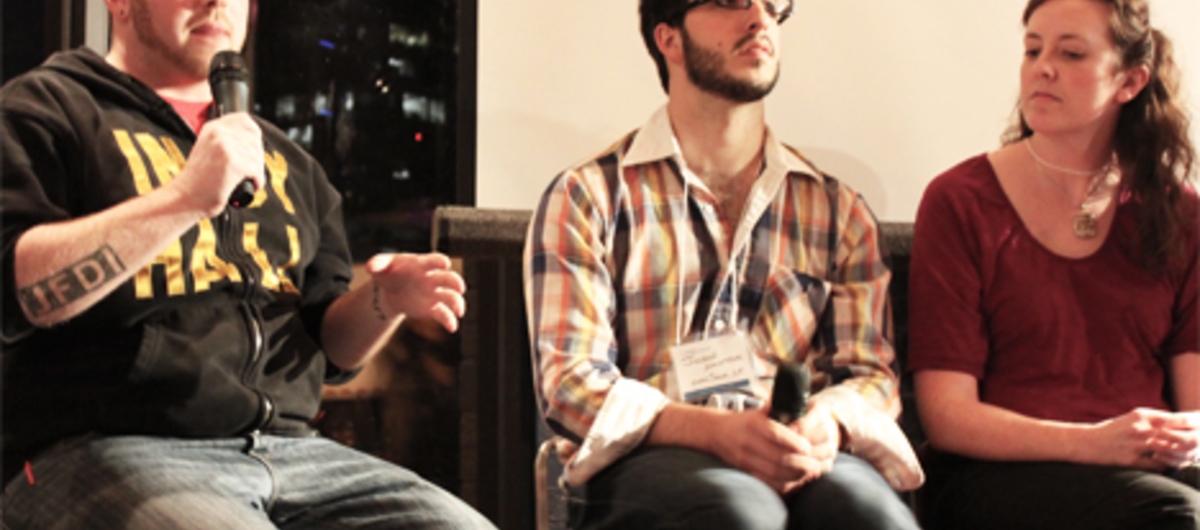The interviews were conducted with Alex Hillman from Indyhall in Philadelphia & Julian Nachtigal from Parisoma in San Francisco.
Deskmag: Do coworking spaces have a life cycle?
Alex: Coworking works when people need it. If you take the inverse of that, then coworking won’t work when people don’t need it. We’re built based on need. What affects the life cycle of a coworking space is your ability to be uniquely valuable. If not, your members will leave you for a space that is more convenient or with a better price. Life cycles exist, but they can be extended.
Julian: I think, it is too early to consider a life cycle. It is still such a young industry. Some of the first spaces from the beginning have closed, but that’s because it wasn’t intended as a business, it was community building like Citizen Space. They wanted to push this movement, and that’s what they really did.
Now you have people who have realized that business and community can work really well together and people can make money. This movement will increase over the next five years. So there will always be some places around that will close, because maybe other spaces are a bit more innovative and take it a bit further. It is a process to reach maturity.
Deskmag: The Global Coworking Survey showed that coworkers use their workspace less often after a few years. What could cause this development?
Alex: I only can think of one person who started with IndyHall and doesn’t come to us anymore. The reasons why people leave are commonly they're moving, when people change jobs for instance. But even if job and workspace has changed, they stayed involved with us; some of them even became more involved than before. They now work in an office and appreciate more the values they got at IndyHall.
Julian: Coworkers just like to being around with other people, and as more coworking spaces are founded they get more options, so there are other communities to explore. We have a coworker who is a member of two coworking spaces in San Francisco and goes back and forward to enjoy different communities.
Secondly, coworkers are especially open for changes, they want to be in different environments. So this is also why they probably look for other coworking spaces after three or four years.
Deskmag: What are some ways to extend the life cycle of your own coworking space?
Julian: If we would notice a change or drop, the biggest thing would be talking to our coworkers about what they like, what they dislike. What would make them stay, this would be my first question. In order to reach a sustainable and profitable model, it was also a good idea for us to move to a bigger space. We ran over capacity with coworkers, we couldn’t hold the events which we liked because of the old size. So we are happy and make money, which makes us even happier. Happiness and making money is not a contradiction for us.
Alex: At IndyHall we have two big growth spurts. One is after New Year’s Eve; it’s like a New Year’s resolution to join a gym. People make a resolution to get out of the house and get more work done. And there’s another right after the summer holidays. We’ve gotten better at weathering that influx. Sometimes people would just come in for a look around and say ‘there’s nothing here for me’. We got better at giving them reasons to stick around, and to join in with the community, and having more reasons than just desks to be there.
The desks are important. But what happens if you take the desks away – what are you providing? Twenty to thirty percent of our membership never even use a desk. They are paying to be involved, they have a desire to be connected to something that is bigger than themselves.
Deskmag: What about a co-op model to strengthen the involvement with a coworking space?
Alex: There is no intrinsic value in being an owner of a coworking space. We looked at art co-ops and collectives, and the reasons they die. They are usually a bunch of artists who need space, so they split the rent. Invariably one person has a ban month, and they can’t make the rent. We wanted to remove all the opportunity for bitching and animosity. The co-op model introduces an arrangement that would get in the way of why we’re here. Co-ops get more complicated than the value they create. I can’t think of something they do that can’t be done in another way.
Deskmag: Back to the life cycle: Is it also possible that some people don’t want to freelance anymore after four years, because they are tired and are looking for a stable salary from a traditional company?
Julian: I think that happens, but this becomes less and less attractive. I also think there are people who start their own company, they have enough money to build their own team, so they don’t freelance anymore. But in the end you have more people who decide to work in lifestyle jobs, they look for independence, for freedom, and it would be hard for these people to deal with a boss again. They don’t want to go back to work for a corporate industry.
Thanks for the interview! And thanks to Jean-Yves Huwart from Coworking Europe to put this topic on the list for a discussion at the Coworking Unconference.
* Update: We conducted the interview during the Unconference. Two weeks later Citizen Space found a new owner - and lives on! There couldn't be something better to confirm the spoken development: "Life cycles exist, but they can be extended."
:::::
Related article:
Global Coworking Survey: The changing needs of coworkers over time








